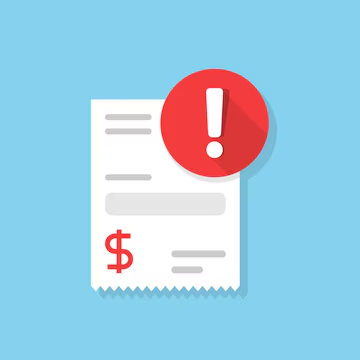15 Budgeting Mistakes That Are Keeping You Broke (And How to Avoid Them)
Budgeting is often seen as a restrictive task, but in reality, it’s one of the most empowering steps you can take to gain control over your finances. Yet, many people struggle to stick with it or see real progress because of subtle budgeting mistakes that are keeping you broke. These mistakes quietly drain your money, leaving you wondering why your financial situation isn’t improving.
This article will uncover 15 common budgeting mistakes that are keeping you broke, explain why they happen, and offer simple, practical solutions to help you build a healthier financial future. Whether you’re just starting out or have tried budgeting before, understanding these pitfalls can truly be a game-changer.
Why Budgeting Matters More Than You Think
Budgeting isn’t just about cutting back it’s about managing your money intentionally. It’s the difference between wondering where your money went and knowing exactly how it’s being used. A well-planned budget brings clarity, lowers stress, and makes your financial goals achievable.
However, if you fall into budgeting mistakes that are keeping you broke, even the best intentions won’t help you move forward. These errors can sabotage your efforts and keep you stuck living paycheck to paycheck.
1. Not Tracking Every Expense Even the Small Ones

Many people overlook small purchases like their daily coffee, app subscriptions, or snacks. These “invisible expenses” add up and silently chip away at your budget.
Why it matters: If you ignore these small costs, your budget may look balanced on paper but won’t match reality, leading to overspending.
How to fix it: Track every expense, no matter how small. Use apps like Mint or a simple expense journal. Review your bank statements weekly and categorize all spending. This awareness helps you spot spending patterns and make better decisions.
2. Setting Budgets That Are Too Strict or Too Loose
Creating a budget that’s overly restrictive can feel suffocating and lead to burnout. On the other hand, a too-loose budget provides no real incentive to save or cut back.
Why it matters: An unrealistic budget either leaves you feeling deprived or unmotivated both are common budgeting mistakes that are keeping you broke.
How to fix it: Aim for balance. Consider the 50/30/20 rule (50% needs, 30% wants, 20% savings/debt) as a starting point, but tailor it to your lifestyle. Allow room for occasional treats to keep your budget sustainable.
3. Ignoring Irregular or Seasonal Expenses
Car repairs, holiday gifts, or annual insurance premiums don’t happen monthly but can disrupt your budget if not planned for.
Why it matters: Overlooking these irregular expenses causes sudden financial stress and often forces people into debt.
How to fix it: Identify these costs, divide the total by 12, and save that amount each month in a separate savings “bucket.” When the expense arrives, you’re prepared without derailing your budget.
4. Neglecting Debt Repayment
Ignoring debt or making only minimum payments seems manageable but slowly drains your money due to accumulating interest.
Why it matters: Debt snowballs and grows harder to tackle, holding you back from financial freedom.
How to fix it: Make debt repayment a priority in your budget. Use strategies like the debt snowball (pay smallest debts first) or debt avalanche (pay highest interest first) to pay off debts faster. Celebrate small milestones to stay motivated.
5. Skipping an Emergency Fund
Life is unpredictable medical emergencies, job loss, or urgent repairs can happen anytime. Without an emergency fund, you risk deeper debt or financial crisis.
Why it matters: Living without a safety net is risky and stressful.
How to fix it: Start small even $25 a week adds up. Aim to build a fund that covers three months of essential expenses. Keep it in a separate, liquid savings account to avoid temptation.
6. Not Reviewing Your Budget Regularly

A budget isn’t “set it and forget it.” Your income, expenses, and priorities change, so your budget should too.
Why it matters: Stale budgets can lead to overspending or missed savings opportunities.
How to fix it: Schedule a monthly budget review. Check actual spending, adjust categories, and realign with your current financial goals.
7. Budgeting Without Clear Goals
Budgeting without goals is like driving without a destination it becomes boring and easy to give up.
Why it matters: Without a “why,” motivation to stick with budgeting fades.
How to fix it: Set clear, specific goals. Whether it’s saving for a house, paying off debt, or retirement, use the SMART framework (Specific, Measurable, Achievable, Relevant, Time-bound) to keep your budget purposeful.
8. Using Only Cash or Only Cards

Relying on just cash or just cards limits your control and tracking options.
Why it matters: Using only cash can lead to running out too soon; only cards can encourage overspending.
How to fix it: Mix payment methods. Use cash envelopes for discretionary spending and cards for fixed bills. Regularly review card statements to monitor expenses.
9. Underestimating Fixed Monthly Expenses
Bills like utilities, subscriptions, and memberships often fluctuate or get overlooked.
Why it matters: Underestimating these can cause last-minute financial scrambling.
How to fix it: Audit recurring expenses every few months. Adjust your budget to reflect actual costs accurately.
10. Falling Prey to Lifestyle Inflation
As income increases, spending often rises too known as lifestyle creep which erodes your ability to save or invest.
Why it matters: Without awareness, raises don’t improve your financial security.
How to fix it: Keep spending habits steady despite income growth. Use extra funds to pay debt, boost savings, or invest. This approach accelerates wealth building.
11. Failing to Automate Savings and Bill Payments

Relying on memory for payments or savings risks missed deadlines and inconsistent saving.
Why it matters: Missed payments hurt your credit and cause fees; irregular savings slow your progress.
How to fix it: Automate bill payments and savings transfers. This builds discipline and peace of mind.
12. Using Generic Budget Templates
Not all budgets fit everyone’s unique needs. Generic templates can feel discouraging and ineffective.
Why it matters: An ill-fitting budget is often abandoned.
How to fix it: Customize your budget considering income variability, lifestyle, and priorities. Use spreadsheets or apps that allow personalization. Experiment and adjust until it works for you.
13. Letting Emotions Drive Spending

Stress, boredom, or celebration can trigger impulsive purchases that wreck your budget.
Why it matters: Emotional spending causes guilt and financial strain.
How to fix it: Identify your triggers and find healthier coping methods—exercise, journaling, or talking to a friend. Use the “24-hour rule” before big purchases to decide if you really need them.
14. Overlooking Small Savings Opportunities
Ignoring options like negotiating bills, cashback, or coupons misses out on easy money-saving chances.
Why it matters: Small savings compound over time and free up funds for bigger goals.
How to fix it: Regularly negotiate bills, use cashback apps, and plan shopping with coupons. Minor adjustments add up significantly.
15. Giving Up After a Setback

Budgeting is a journey with ups and downs. Setbacks like unexpected expenses or overspending happen, but quitting isn’t the answer.
Why it matters: Giving up prolongs financial struggles and kills motivation.
How to fix it: View setbacks as lessons. Reassess your budget, adjust as needed, and keep moving forward. Celebrate progress over perfection.
Helpful Tools and Resources
To support your budgeting journey and avoid these common budgeting mistakes that are keeping you broke, consider:
- Mint: A free app for tracking expenses and managing budgets.
- You Need A Budget (YNAB): A paid app focused on goal-oriented budgeting.
- Google Sheets: Customizable spreadsheet templates for flexible budgeting.
- Financial blogs and podcasts for continuous learning and motivation.
Conclusion
The budgeting mistakes that are keeping you broke are often subtle but powerful barriers to your financial success. Recognizing and addressing these 15 common errors will help you build a realistic, flexible, and motivating budget that fits your goals and lifestyle.
Remember, budgeting isn’t about perfection it’s about steady progress and consistency. Start small, stay committed, and watch your financial confidence grow.
Frequently Asked Questions (FAQs)
Q1: How soon can I see results after fixing my budgeting mistakes?
Results vary, but many people notice better financial awareness and less stress within a month or two.
Q2: What if my income fluctuates every month?
Create a baseline budget based on your lowest expected income, then allocate extra earnings to savings or debt repayment.
Q3: How can I stay motivated to budget consistently?
Set clear goals, celebrate small wins, and remind yourself of the positive impact budgeting has on your life.
Q4: Are budgeting apps safe to use?
Most reputable apps use strong encryption and security measures. Use strong passwords and enable two-factor authentication.
Q5: Can I budget effectively if I’m living paycheck to paycheck?
Yes. Budgeting is even more important in this situation as it helps you prioritize essentials and find small savings opportunities.







Leave feedback about this